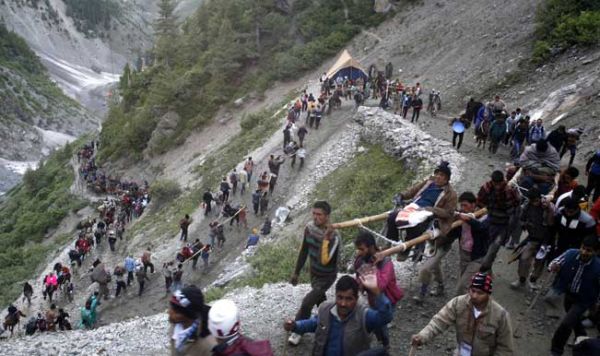BY: Boris Johnson
It was 73 years ago – almost to the day – that Winston Churchill travelled to Fayoum Oasis in Egypt for a meeting with the king of Saudi Arabia. “His own cup-bearer from Mecca offered me a glass of water from its sacred well, the most delicious that I had ever tasted,” wrote Churchill of this encounter with King Abdulaziz Al Saud.
If that meeting in the desert was an early chapter in relations between Britain and Saudi Arabia, then we will turn a new page on March 7 when his grandson, Crown Prince of Saudi Arabia Mohammed bin Salman, visits London.
There will be those who would object to engaging with a kingdom that is a powerhouse of the Middle East and, incidentally, one of Britain’s oldest friends in the region.
If you have any sympathy with such views, then let me highlight a few salient facts.
In the eight months since Mohammed bin Salman became crown prince, Saudi Arabia has introduced exactly the kind of reforms that we have always advocated.
The ban on women driving has been overturned. Gender segregation has been relaxed. The kingdom has adopted an official target for women to account for 30 per cent of the workforce: in February women were allowed to register their own businesses. Women now attend sporting events and from next month cinemas will open their doors to everyone.
If you are inclined to dismiss these advances, then I will respectfully suggest that you are making a profound mistake. Change does not come easily in Saudi Arabia. In a matter of a few months, genuine reform has taken place after decades of stasis.
And that fact tells an important story. The crown prince and his father King Salman have together embarked on the social and economic renewal of Saudi Arabia, launching a national programme known as Vision 2030. In October the crown prince said that the overarching goal was to build a “country of moderate Islam that is open to all religions and to the world”. He also promised to “eradicate promoters of extremist thoughts”.
If you are tempted to brush off those phrases as platitudes aimed at outsiders, consider that the crown prince was speaking not in English in some western capital but in Arabic to an audience in Riyadh. His words have been given meaning by the establishment in his capital of a new centre to counter the financing of terrorism.
What conclusion should we draw? I believe that the crown prince, who is only 32, has demonstrated by word and deed that he aims to guide Saudi Arabia in a more open direction.
The worst response would be for Britain to criticise from the sidelines or shun the kingdom altogether; instead our role must be to encourage him along this path.
Be in no doubt: the future of Saudi Arabia – and indeed the region and the wider Muslim world – depends on his success. Hence the importance of the crown prince’s visit to London. This will be a chance to strengthen our relationship with Saudi Arabia, both as an end in itself and as the best means of promoting reform.
I will not minimise Britain’s differences with the kingdom. I want Saudi Arabia to do more to protect human rights. But we cannot deliver these messages or resolve our disagreements unless we meet the kingdom’s leaders.
Nor can we uphold the British national interest. Remember that tens of thousands of British jobs depend on our exports to Saudi Arabia, which climbed to £6.2 billion in 2016, a 41 per cent rise since 2010. When it comes to keeping Britain safe, intelligence from Saudi Arabia has been crucial in the struggle against terrorism. The simple truth is that British lives have been saved and attacks prevented because of our security cooperation with Saudi Arabia.
This relationship has long been important for global security. Saudi Arabia was a firm ally during the Cold War and, amid all the turbulence of the Middle East, the kingdom has generally acted as a force for stability and moderation. It was the late King Abdullah who threw his diplomatic weight behind a two-state solution to the Arab-Israeli conflict by proposing the bold Arab Peace Initiative.
Today Britain and Saudi Arabia are working together to counter Iran’s disruptive behaviour in the Middle East and bring the war in Yemen to an end. Last year King Salman took the far-sighted decision to pursue a rapprochement with the Shia-led government in Iraq, something that will help to stabilise the country after the defeat of Daesh.
You might reply that far more needs to be done to reach a peaceful settlement in Yemen and ensure that aid gets through to everyone in need. I agree. That is exactly why we need to discuss these vital matters with the crown prince during his visit to the UK.
UK’s foreign policy is designed to promote the safety and prosperity of the British people while upholding our values as a force for good. We cannot achieve any of these goals unless we meet the leaders of Saudi Arabia on equal and friendly terms.
That was true when Churchill drank the spring water of Mecca with Ibn Saud in 1945, and it remains true today.
- Boris Johnson is the Secretary of State for Foreign and Commonwealth Affairs of the United Kingdom



